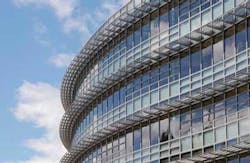U.S. aluminum giant Alcoa and the Saudi Arabian Mining Company (Ma’aden) announced that they have completed the first stage of their joint venture project, which will see an innovative engineered wetland wastewater management system in Saudi Arabia. The new facility will contribute 2 million U.S. gallons of water per day and would lead to savings of over $7 million every year that would otherwise have been spent to buy fresh water, Alcoa stated in a press release.
The system, which is expected to be fully operational by the end of July, is the first of its kind and has the potential to significantly reduce water demand in water-deprived areas; the company is considering utilizing the technology at some of its other sites, including in the United States. The naturally engineered wastewater treatment system collects sanitary and industrial wastewater, cleans it and disinfects it without the use of chemicals. The system does not create water discharge or odors that are usually present in conventional tank systems.
Doing the three step
The wastewater treatment process consists of three steps. First, organic material in the water is broken down and separated from the liquid in an anaerobic treatment tank. Next, a passive engineered wetland extracts vegetation for further treatment of the organic material. Chemicals like nitrogen and metals are also removed. The last step involves a bauxite-based technology that disinfects and polishes the water.
Alcoa stated that as far as quality went, the treatment system produced water that was the same or better than that of a conventional system. Treated water will be reused in the manufacturing process and for irrigation at the Ma’aden-Alcoa aluminum complex at Ras Al Khair, which includes a refinery, smelter and rolling mill.
RELATED: US oil, chemical companies battle over shale gas exports
Alcoa demonstrated the sustainable technology in its Technical Center near Pittsburgh, Pa. It was developed by Alcoa technical experts with the aim to simulate the natural physical, chemical and biological processes of wetlands. Apart from saving water and money, the innovative facility was constructed six months faster than a traditional tank-based system. Moreover, it eliminated the need for about 1,000 metric tons of steel for piping and tanks, the company explained.
Sustainability speech
Abdulaziz A. Al Harbi, Ma’aden Aluminium’s president, commented that sustainability was one of the key values at the company. It was also a major element in Ma’aden’s operations, which would help the business become the world’s lowest-cost producer of primary aluminum, alumina and aluminum products. Ma’aden was set to take advantage of that fact and will try to access new markets not just in the Middle East but globally, he said.
Ray Kilmer, Alcoa’s executive vice president and chief technology officer, added that the new waste management system was proof of the effective combination of Ma’aden’s local knowledge and expertise, on one hand, and the technological know-how and sustainability leadership of Alcoa, on the other. With their joint venture, the two companies helped the site to become an oasis in the desert by safely treating and conserving water in a way that was positive for the environment, he concluded.
